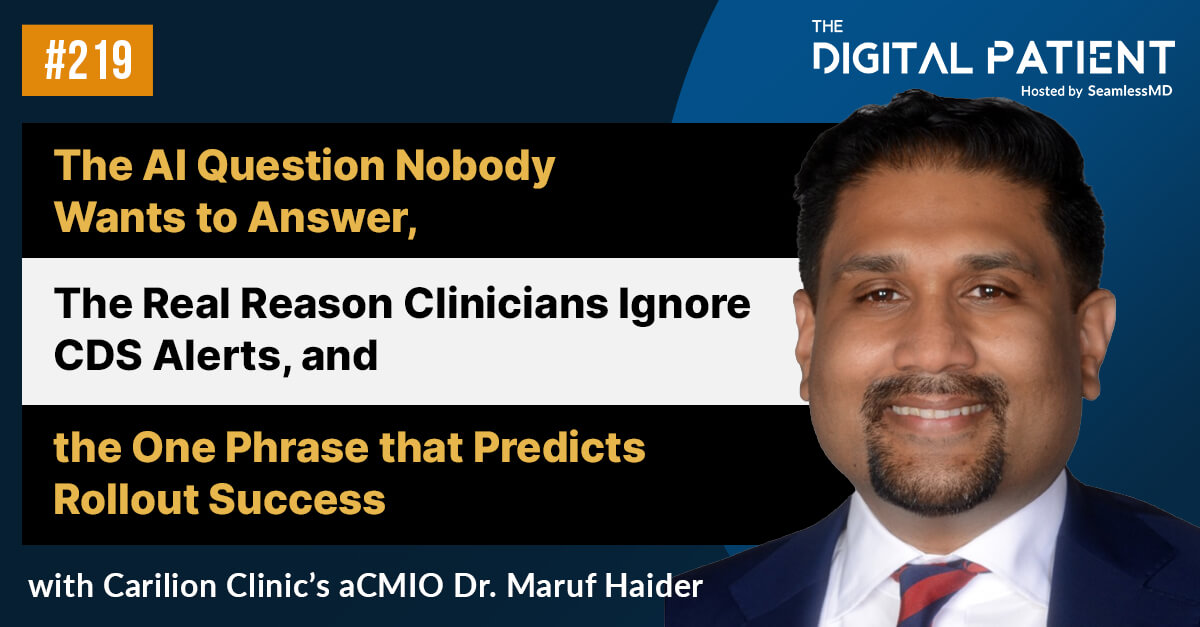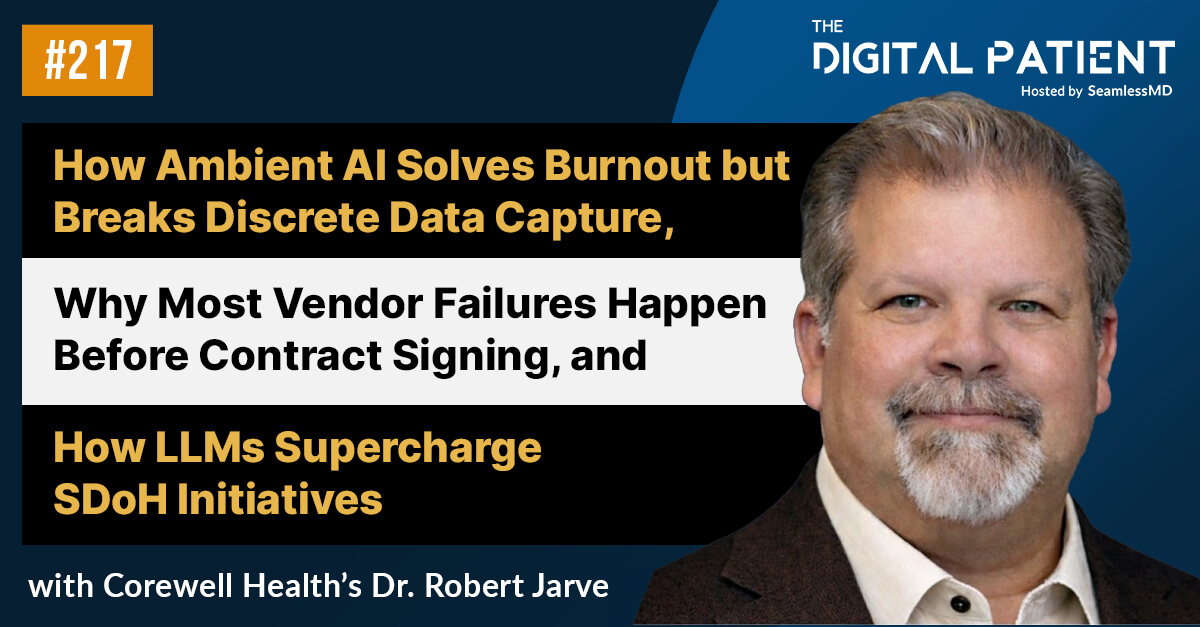Subscribe on: RSS | SPOTIFY | APPLE PODCAST | GOOGLE | BREAKER | ANCHOR
On this episode of "The Digital Patient" podcast, hosts Alan Sardana & Dr. Joshua Liu speak with Dr. Becket Mahnke, Chief Medical Information Officer at Confluence Health, about Shifting from CMIO 2.0 to 3.0, Creating "Invisible" Technology for Patients, and Pioneering Digital Health for the Army. Click the play button to listen or read the show notes below.
Audio:
Video:
Guest(s):
Dr. Becket Mahnke, Chief Medical Information Officer at Confluence Health
Dr. Joshua Liu (@joshuapliu), Co-founder & CEO at SeamlessMD
Episode 68 - Show Notes:
[0:00] Introducing Dr. Becket Mahnke, Chief Medical Information Officer at Confluence Health;
[3:30] How Dr. Mahnke fell into the world of digital health back in 2003 during his time with the Tripler Army Medical Center where he spent 7-8 years researching and innovating the pediatric cardiology telemedicine space out of necessity to serve patients from around the world asynchronously;
[8:00] Why remote cardiac auscultation took four years to finalize due to technology limitations at the time and the need to optimize four components (Capture, Transfer, Playback & Reporting) so that providers could efficiently leverage the technology as if the patient were there in-person;
[13:33] How Dr. Mahnke viewed his role as a pediatric caregiver in the army to alleviate concerns for those overseas and how his uniform created alignment with those he was serving;
[18:40] How Dr. Mahnke was able to submit his previous telemedicine work in lieu of a 2-year fellowship to receive his clinical informatics board certification and why it was important to him so he could establish credibility with IT;
[20:34] Why Dr. Mahnke appreciates a balance between informatics and clinical work in order to be effective as a CMIO;
[22:22] Why Dr. Mahnke believes technical skills are often far less important today for a CMIO and how communication and the ability to say “no” are the two most important skills for a CMIO to have to be successful in an organization;
[27:30] How Dr. Mahnke views his role as a “Chief Medical Imitation Officer” where he is deploying existing, proven methods rather than inventing new solutions, which rely on failure in the process;
[29:40] Why Dr. Mahnke believes the role of a CMIO has transitioned from CMIO 1.0 where the CMIO was responsible for implementation and meaningful use of technologies such as the EHR, to CMIO 2.0 where the CMIO was focused on optimizing the EHR and implementing basic digital patient engagement, to now CMIO 3.0 where the focus is on optimizing patient engagement for population health and leveraging data for meaningful decisions;

[36:36] How Dr. Mahnke’s goal for the digital ecosystem is for the tech to be “invisible” to patients and providers–with one login for the patient portal or EHR–so that all of their cognitive bandwidth can be spent effectively on their care;
[41:00] Why Dr. Mahnke builds visual, color-coded roadmaps for the teams inside the organization to understand what is being worked on and to ensure equity for all vested interests;
[43:20] Why Dr. Mahnke does not iterate a new implementation within the first 6 months of deployment (unless there are bugs) so that the team focuses on clearly defining what they want before starting and to streamline focus on change management during the adoption phase;
[44:46] How Dr. Mahnke deployed a “smart ribbon” for the EHR during his first weeks at The Queen’s Medical Center, which was supposed to display predictive analytics to providers on each page of the EHR, and how the actual benefit of the technology was displaying medication costs to physicians, which ended up changing long term stewardship practices;
[51:55] Why Dr. Mahnke is not a fan of pilots and would rather focus on innovation adoption, understanding that failure is a part of the innovation process and is often phase 1 of implementation;
Fast 5 / Lightning Round:
- What is your favorite book or book you’ve gifted the most?
“The Digital Doctor” by Robert M. Wachter;
“The Design of Everyday Things” by Don Norman;
“Measure What Matters: OKRs: The Simple Idea that Drives 10x Growth” by Jon Doerr; and
“Never Split the Difference: Negotiating As If Your Life Depended On It” by Chris Voss and Tahl Raz;
- Favorite travel destination?
“Nepal.” - Would you rather have Super strength, super speed, or the ability to read people’s minds?
“Super speed.”
- What is something in healthcare you believe that others might find insane?
“Transplants...”
- COVID-19 lockdown related – what is 1 hobby or activity you’ve gotten into since the pandemic?
“Expanding my whiskey collection”
.svg)










.png)
